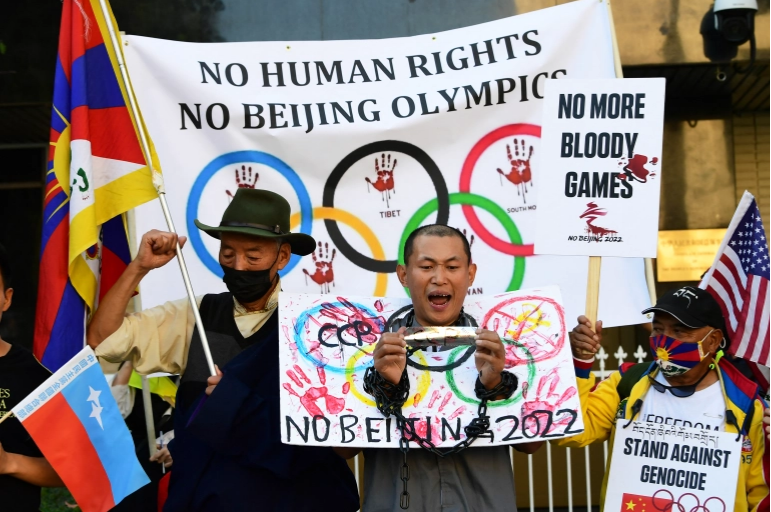On Monday, December 6, 2021, President Biden announced that not a single U.S. official would be sent to Beijing Winter Olympics this coming February. The U.S. has not boycotted the Olympic Games since the Moscow Games in 1980, so why now? The United States is taking a public stance by symbolically protesting the atrocities committed to the Uyghur Muslim minority in Northern China.
The International Olympic Committee has always seen itself as a non-political progressive force that provides an alternative to conflict by promoting peace, unity, and egalitarianism embedded in the Olympic ideology of Olympism. The Olympics take great pride in being seen as a legitimate platform outside of the United Nations for international relations. However, time and time again, the Olympics have been an overtly political space. The Nazi games of Berlin in 1936, the Cold War propaganda between the United States and the Soviet Union, African nations protesting South Africa’s inclusion during apartheid, China protesting Taiwan’s participation, Puerto Rico’s use of the games for nationhood, and the labor issues during the Beijing 2008 and Sochi 2014 Games name a few occasions in which politics were front and center in the Olympics. This symbolic boycott by the United States is intriguing for understanding international politics and the political use of the label “Genocide.”
“Genocide” is one of the most politically charged terms that exists. Governments strategically choose when to apply the term genocide to an atrocity in order to avoid political and economic intervention. Look no further than the belated application of the label “genocide” by the United States government regarding Rwanda in 1994 and Darfur in 2008. The setback to label these events as “genocide” led to a delay in intervention, leading to increased violence and death tolls.
China is the United States’ biggest rival for the title of the globe’s Superpower nation. Like in the Cold War, the United States is using the Olympic Platform for political propaganda. Suppose the United States and the Biden administration were serious about the atrocities committed towards Uyghurs. Why do they not boycott the Games in their entirety? The United States is still allowing American athletes to compete in Beijing. The Olympics are an arena in which soft power manifests itself, where government officials and business elites attend from across the globe. It is a platform used to promote and perform a nation’s strength. The United States refusing to send a single government official represents the nation taking the moral high ground, while simultaneously allowing American athletes to compete demonstrates the ideological faultlines for this “symbolic” protest.
Now, history seems to be repeating itself with the politics of labels overriding politics of action. Just like in the past, the term “genocide” is only being used as a half-measure not to send officials to a sporting event dubbed the “Genocide Olympics” but not enough to justify the intervention of actual genocide. The United States may deem themselves self-proclaimed winners, but the Uyghurs are losing, and not on a semantic level.
Edgar Campos is a PhD candidate at the University of Minnesota, Twin Cities. He studies cultural politics and how it affects international relations. His dissertation focuses on the politics of culture surrounding the Mexico City 1968 Olympic Games. Campos will start a new role as an assistant professor of sociology at the Department of Sociology & Anthropology at Texas Christian University in Fall 2022.


Comments